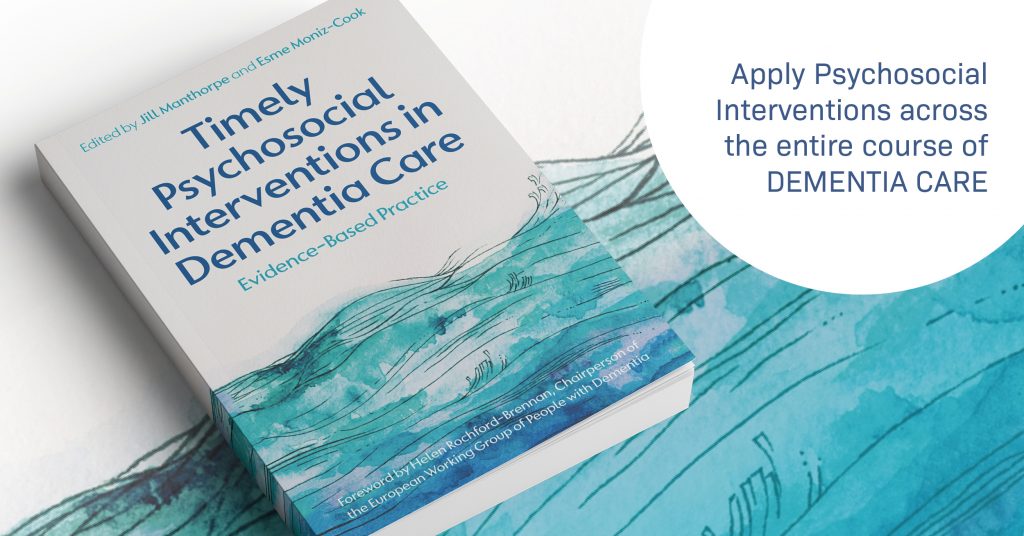
Take a read to learn more about Jill Manthorpe and Esme Moniz-Cook’s latest JKP publication, Timely Psychosocial Interventions in Dementia Care.
Timely or early? That was the choice presenting itself when we thought about producing a new book on research innovations in dementia care and practice. Our previous book for JKP seemed to have filled a market gap. Its wide range of contributions from across Europe gave hope and evidence about the value of psychosocial interventions. This was at a time (2009) when the focus was on access to medication and early diagnosis. Today we recognise – that ‘early’ is best replaced by ‘timely’ and that ‘timely’ can apply to any stage along the trajectory of dementia, when early symptoms are emerging or later when a person may be quite disabled or close to death.
We have produced this new book for readers who work in dementia services or who want to learn more about dementia care. We were very influenced by conversations with colleagues across the globe about their work and wanted to bring these insights to a wider audience.
This is why we asked our contributors to write their chapters in a particular format – summarising their research and what they learned, particularly its relevance to practice. We hope this makes for ‘easy’ conversations and helps translate international research into accessible influence.
The book itself is further ‘timely’ for UK readers with our recent government’s commitment to fund more dementia research. We hope it stimulates new studies and ideas that inspire people to do the heavy tasks of research development. In the UK, commitment to research funds is now accompanied by many helpful resources for researchers, particularly from the National Institute of Health Research.
We look forward to hearing if any of the studies reported in this book inspire new research or practice developments. There are plenty of interesting ideas from different cultures, countries and contexts but also reports of interventions that are long-standing such as music or support with mealtimes. There is now ample room to consider how an intervention in one setting might be transferrable to another, with modifications as necessary.
The book’s contributors have done us (for those of us who are English speaking) a great favour by writing in English. Their willingness to do so, and in particular to communicate to practitioners, rather than using the ‘codes’ familiar to researchers is much appreciated. They have been generous in sharing what they found with all the limitations of their studies spelled out for us. Anyone who wants to take their work into new areas will appreciate their integrity and goodwill.
Finally, we are grateful to our colleagues from Alzheimer’s Europe and in particular, Helen Rochford-Brennan for her kind words that preface this book. The diverse voices of people with dementia are prominent in all the chapters and we are grateful to all those who informed the case studies or illustrative examples that underpin the research and practice developments. They are also the contributors to this book and we thank them.
By Jill Manthorpe and Esme Moniz-Cook
Click here to get your copy of Timely Psychosocial Interventions in Dementia Care, today.